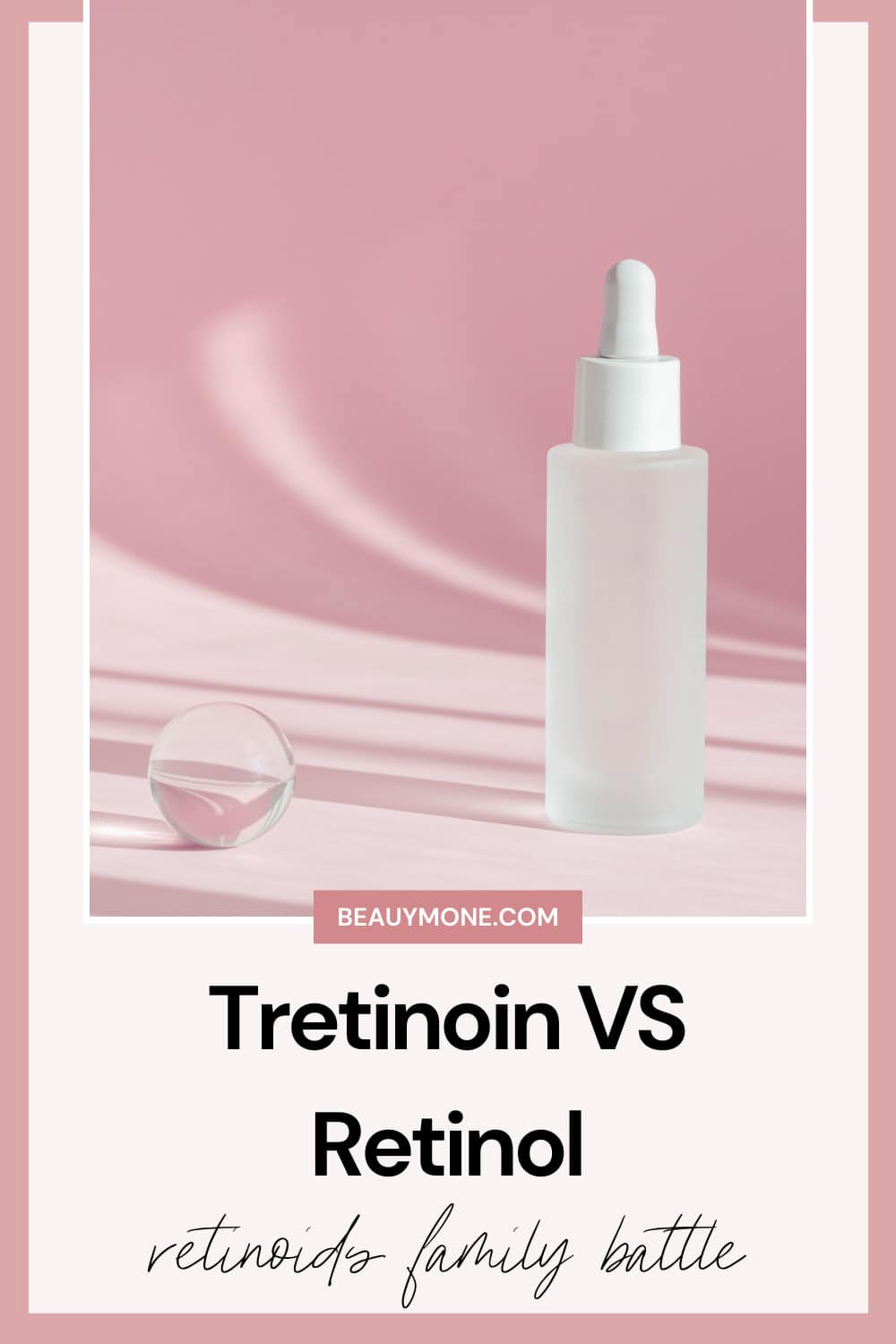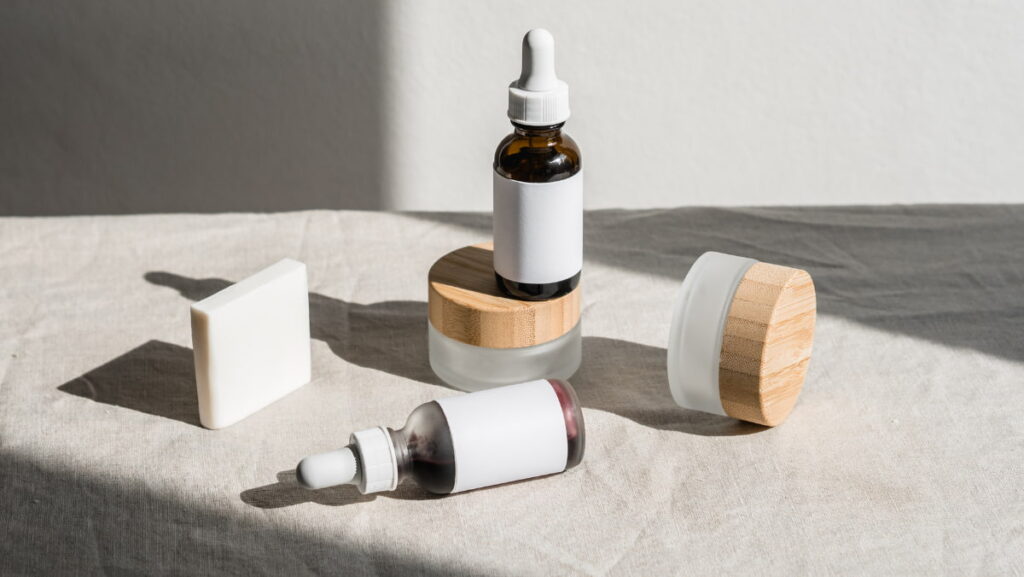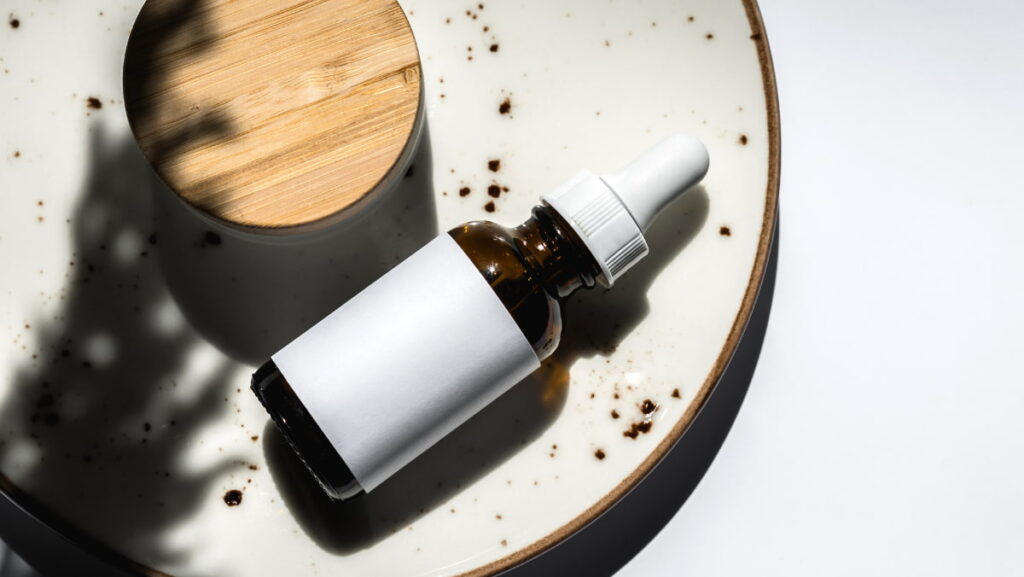
When it comes to skincare, the differences between tretinoin and retinol often spark a debate. As derivatives of Vitamin A, both ingredients have garnered a strong reputation for their impressive effects in reducing the signs of aging and improving skin health.
However, understanding their unique properties, benefits, and potential side effects can help you determine which is best suited for your skin type.
Although there are similarities between tretinoin and retinol, weighing the pros and cons before committing to a skincare routine is essential.
The benefits of tretinoin for the skin are well-documented, as it’s a powerful ingredient commonly prescribed to treat more severe skin concerns like acne and significant signs of aging.
On the other hand, the benefits of retinol for the skin include its ability to boost collagen production, reduce fine lines, and improve skin texture, making it a popular choice for both beginners and those with sensitive skin.
I am here to help you settle the debate: tretinoin vs. retinol by providing in-depth analysis and comparison. So get ready to dive deep into one of our biggest weapons in achieving glowing, youthful skin!
Understanding Tretinoin and Retinol
To understand the differences between tretinoin and retinol, I will do a thorough dive into science and research to explain what each one is and what it does for our skin.
Both tretinoin and retinol are derivatives of vitamin A, which is a fat-soluble vitamin that is essential for the health of skin, vision, and immune function. Therefore, they are both members of the “retinoid” family.
Tretinoin VS Retinol: Side Tretinoin
Tretinoin is the most well-researched family member on its benefits for the skin. It is the synthetic form of naturally occurring retinoic acid, the most potent form of vitamin A.
Therefore, tretinoin is a potent prescription-strength retinoid that stimulates collagen production and promotes cellular turnover in the skin.
The benefits of tretinoin for the skin are no joke! It’s often used to treat acne, sun damage, and aging skin. Some key benefits include improved skin texture, reduced fine lines and wrinkles, and a more even skin tone.
Tretinoin VS Retinol: Side Retinol
Retinol is a form of vitamin A that we consume from several foods. Synthesized retinol is used in many over-the-counter (OTC) products. When retinol is applied topically to the skin in skincare products, it is converted into retinoic acid by enzymes in the skin.
Retinol also boosts collagen production, reduces fine lines, and evens out skin pigmentation.
However, just like with all good things, there is a limitation to the use of retinoids for the skin: adverse effects.

The Side Effects Of Retinoids On The Skin
While topical retinoids like tretinoin and retinol can do wonders in reducing the signs of aging, they can also have some adverse effects.
These side effects may include skin irritation, redness, peeling, and dryness. Some people may also experience itching or a stinging sensation when using retinoids, especially if they have sensitive skin.
In rare cases, retinoids can also cause more severe side effects, such as blistering or crusting of the skin.
However, most people can avoid these side effects with proper use, starting with a lower concentration of retinoids and gradually increasing the strength as their skin adjusts.
They should also be used with caution or avoided during pregnancy due to the potential risk of teratogenesis and other adverse effects on fetal development.
Tretinoin is considered a stronger retinoid than retinol and, as a result, may be more likely to cause side effects compared to gentler retinol.
| Benefits of Retinoids for Skin | Adverse Effects of Retinoids on Skin |
| Reduces fine lines and wrinkles | Skin irritation |
| Improves skin texture and tone | Redness |
| Increases collagen production | Peeling |
| Helps with acne and acne scars | Dryness |
| Reduces hyperpigmentation | Itching |
| It may improve skin thickness and elasticity | Stinging sensation |
| Photosensitivity |
To sum up, the similarities between tretinoin and retinol are that both:
- Originated from vitamin A
- Boost collagen production
- Improve skin texture and tone
- Treat acne
- Reduce fine lines and wrinkles
- They can have side effects like skin irritation, redness, and dryness
Key Differences Between Tretinoin And Retinol
Continuing on the hot topic of tretinoin vs. retinol, I will now serve you the main differences between tretinoin and retinol.
Although these much-loved skincare ingredients share many similarities, they also have some significant differences.
Tretinoin VS Retinol: Differences In Their Skin Benefits
First, let’s talk about the benefits. Both tretinoin and retinol work by boosting cell turnover and promoting collagen production. They also serve as effective exfoliants, helping remove dead skin cells and unclog pores.
Therefore, both tretinoin and retinol can cause the same changes on the skin and have similar benefits, like diminishing fine lines and improving skin tone and texture.
Their key difference lies in the potency factor. According to the review I linked above, retinol is 20 times less potent than tretinoin.
To refresh your knowledge: retinol is converted to retinoic acid (natural tretinoin) on the skin. However, this conversion process can take some time, and the concentration of retinoic acid produced may be lower than that achieved with prescription-strength formulations like tretinoin.
That is why tretinoin is prescribed to battle more tough skin concerns like acne vulgaris, serious photo-aging, melasma, etc.
On the other hand, retinol is available over the counter and offers a gentler approach to skin rejuvenation.
To sum up: Tretinoin has similar benefits to retinol, but it will take you there faster and more effectively.
Tretinoin VS Retinol: Differences In Their Side Effects
Now, here’s the scoop on side effects. Tretinoin is well-known to cause some initial irritation, such as redness, dryness, and flaking.
This can be a big turn-off for some, but I’ve found that these side effects usually subside after a few weeks of consistent use.
With retinol, side effects are typically milder because of its lower strength, making it a better option for those with sensitive skin.
| Treatment | Benefits | Side Effects |
| Tretinoin | Reduces fine lines and wrinkles Improves skin texture Minimizes acne | Redness Dryness Flaking |
| Retinol | Diminishes fine lines Improves skin tone | Milder side effects |
To sum it up, these are the main differences between tretinoin and retinol:
- Tretinoin is prescription-strength and more potent, while retinol is available over-the-counter.
- Tretinoin tends to have stronger side effects initially, whereas those from retinol are milder.
- Both share the same core benefits, but tretinoin tends to produce more significant results in less time.

Benefits of Using Tretinoin over Retinol
Just like this study suggests, topical retinol induces similar changes in the skin, and the magnitude is more than half of retinoic acid’s.
Therefore, the true benefit of tretinoin over retinol is its potency, leading to faster and more noticeable results.
- More potent and faster results: Because tretinoin is more potent, it may produce visible improvements in the skin more quickly than retinol.
- Better acne treatment: Tretinoin has been shown to be more effective in treating acne, especially severe acne.
Due to its potency, it can penetrate the skin more deeply, unclogging pores and targeting the root causes of acne.
Retinol can still help with mild acne, but tretinoin is the go-to choice for more severe cases.
- Stronger anti-aging effects: Tretinoin has been shown to be more effective than retinol in reducing the appearance of fine lines, wrinkles, and other signs of skin aging.
Retinol Advantages Compared to Tretinoin
What sets retinol apart from tretinoin is its over-the-counter accessibility. While tretinoin requires a prescription, retinol can be found in a wide array of skincare products, making it more accessible to the average consumer.
Moreover, retinol is generally less irritating than tretinoin because it is a less potent form of vitamin A. Individuals with sensitive skin may find that the side effects of tretinoin and retinol differ significantly.
Tretinoin’s side effects might include redness, peeling, and drying, whereas retinol can be less likely to cause such irritation.
In conclusion, retinol boasts several advantages compared to tretinoin:
- Over-the-counter accessibility
- Suitable for a wide range of skin types, including sensitive skin
- Fewer side effects and irritation
Tretinoin vs. Retinol: Which One Is Right For Your Skin?
To settle the battle between tretinoin vs. retinol and decide which one is right for your unique skin type, consider the following factors:
- Specific skin concerns
- Personal skincare needs
- Sensitivity to skincare products
- The desire for prescription strength or OTC ingredients
If you’re struggling with more significant skin concerns such as severe acne, deep wrinkles, or long-term sun damage, tretinoin may be a better option than retinol due to its intensive strength.
However, if you have sensitive skin or prefer a milder OTC ingredient, retinol could offer solid results without as much irritation. Retinol is also better suited to babes just starting to integrate retinoids into their skincare routine.
Let’s review some scenarios to see which ingredient would be better suited:
- Sensitive skin: Retinol is a gentler option that may be more suitable for sensitive skin types.
- Mature skin: Tretinoin offers more potent anti-aging benefits, making it a better choice for those looking to address more advanced signs of aging.
- Acne-prone skin: Tretinoin is often used as an acne treatment, while retinol is typically used for milder breakouts or preventative care.
Tretinoin vs Retinol: A Conclusion
The tretinoin vs. retinol debate is finally settled! There is no winner, just what suits your unique needs and skincare goals.
Tretinoin offers more potent benefits for the skin. Still, it may cause more side effects, while retinol is a milder option that’s great for sensitive skin or beginners.
Ultimately, it’s best to consider factors such as your specific skincare concerns, tolerance to potential side effects, and personal preferences.
Remember to always consult with a dermatologist before incorporating new ingredients into your skincare routine, especially if you have specific concerns or sensitivities.
Frequently Asked Questions
